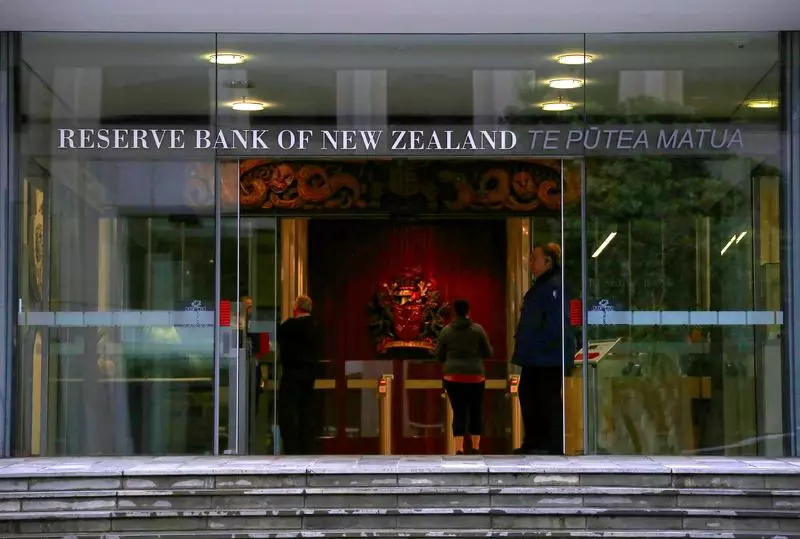New Zealand’s central bank, the Reserve Bank of New Zealand (RBNZ), made a decision to keep the cash rate steady at 5.5% on Wednesday. This decision was in line with the expectations of economists, however, the accompanying commentary indicated a potentially less restrictive monetary policy in the future if inflation slows as predicted.
RBNZ’s Commentary
The RBNZ stated that while monetary policy will need to remain restrictive, the extent of this restraint could be reduced over time in alignment with the expected decline in inflation pressures. This signaled a more dovish stance than previously anticipated by many economists and market participants.
Market Response
In response to the RBNZ’s announcement, the New Zealand dollar depreciated by 0.74% to $0.6085. Additionally, two-year swap rates dropped by 11 basis points to a six-month low of 4.6850%, implying a potential 25 basis points of rate cuts in October. Market participants interpreted the commentary as a signal for a possible easing cycle starting in November.
The RBNZ expressed its expectation for headline inflation to return to within the 1% to 3% target range in the second half of the year, down from 4% in the first quarter. While certain domestically generated price pressures are still strong, indications suggest that inflation persistence may ease due to a decline in capacity pressures and business pricing intentions.
Economic Impact
The rate hikes implemented by the RBNZ have had a significant impact on the New Zealand economy, leading to a notable slowdown. However, recent data showed that the country emerged from a technical recession in the first quarter of 2024 with a growth rate of 0.2%. This suggests a delicate balance between controlling inflation and supporting economic growth.
Before the rate decision, a majority of economists anticipated interest rates to fall to 5.25% or lower by the end of the year, with some even predicting multiple rate cuts. The RBNZ’s commentary has increased the likelihood of earlier cuts, with some experts suggesting a potential shift towards easing starting in November.
Global Monetary Trends
New Zealand’s stance on interest rates mirrors a broader trend among central banks worldwide. Countries like the European Central Bank, Canada, Sweden, and Switzerland have recently lowered interest rates, while the U.S. Federal Reserve is expected to engage in discussions regarding rate cuts in the near future. Interestingly, Australia’s Reserve Bank is considering raising rates due to inflation concerns.
Overall, the RBNZ’s decision to maintain the cash rate reflects a cautious approach to managing inflation while supporting economic growth. The potential shift towards a more accommodative monetary policy signals a proactive response to changing economic conditions, reflecting the central bank’s commitment to maintaining stability and sustainable growth in the New Zealand economy.

